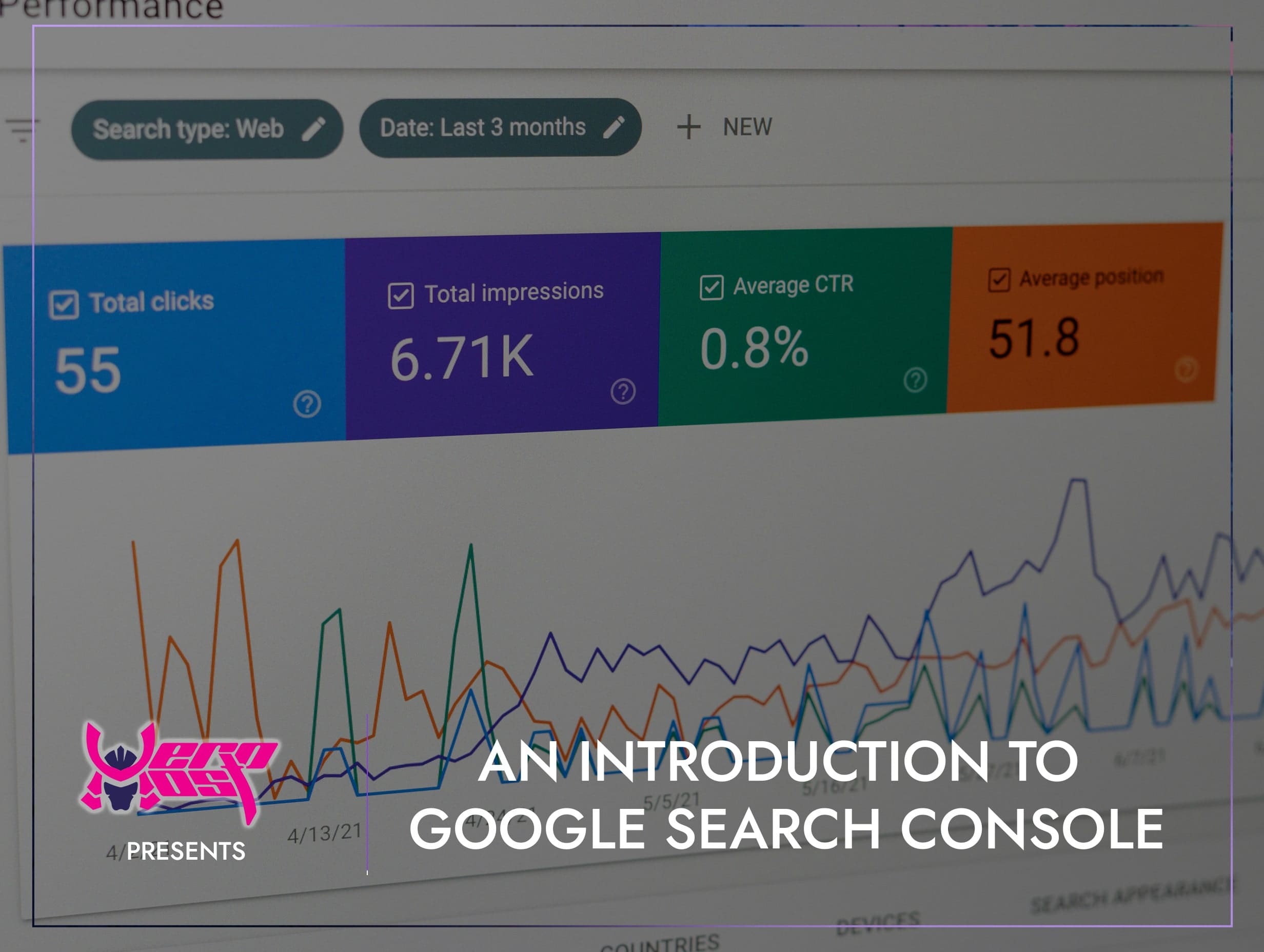An Introduction To Google Search Console
- Home
- Google Analytics & Search Console
- An Introduction To Google Search Console

- Mikey Ryu
- June 13, 2024
- 0
An Introduction To Google Search Console
In the digital age, ensuring your website is visible to search engines is crucial for driving organic traffic and achieving online success. Google Search Console (GSC) is a powerful tool that helps website owners monitor, maintain, and troubleshoot their site’s presence in Google Search results. This blog will provide an introduction to Google Search Console, covering its overview, benefits, best practices, and how it complements Google Analytics.
Overview
Google Search Console, formerly known as Google Webmaster Tools, is a free service provided by Google that helps website owners, webmasters, and SEO professionals understand and improve their site’s visibility in Google Search results. Launched in 2006, GSC offers a suite of tools and reports to help users monitor website performance, submit sitemaps, check indexing status, and optimise search presence.
GSC provides insights into how Google views your site, including which queries drive traffic, how users interact with your search results, and any issues preventing your site from appearing in search results. By leveraging this information, website owners can make informed decisions to enhance their site’s search engine optimisation (SEO) and overall performance.
Benefits
Google Search Console offers numerous benefits that can significantly impact a website’s search performance and visibility. Here are some of the key advantages:
Performance Monitoring:
GSC provides detailed reports on your website’s performance in Google Search, including the number of clicks, impressions, average click-through rate (CTR), and average position. These metrics help you understand how well your site is performing and identify areas for improvement.
Index Coverage Reports:
GSC shows which pages on your site are indexed by Google and highlights any issues that may prevent pages from being indexed. This ensures that your content is discoverable by search engines and can appear in search results.
Search Traffic Insights:
The Search Analytics report in GSC provides insights into the queries that bring users to your site, the pages that receive the most traffic, and the devices users are using. This information helps you optimise your content for relevant keywords and improve your SEO strategy.
URL Inspection Tool:
The URL Inspection tool allows you to check the status of individual URLs on your site, including when they were last crawled, whether they are indexed, and any issues encountered by Googlebot. This helps you troubleshoot and resolve specific URL-related problems.
Sitemap Submission:
Submitting a sitemap to GSC helps Google understand the structure of your site and discover new pages. This ensures that your content is indexed more efficiently and accurately.
Mobile Usability Reports:
GSC provides insights into how your site performs on mobile devices, including any usability issues that may affect user experience. With the increasing importance of mobile-friendly websites, these reports are crucial for optimising your site for mobile users.
Security and Manual Actions:
GSC alerts you to any security issues, such as malware or hacking, and manual actions taken by Google against your site for violating guidelines. This allows you to address these issues promptly and maintain a healthy site.
Best Practices
To make the most of Google Search Console, it’s essential to follow best practices that ensure your site is optimised for search engines and users alike. Here are some tips:
Regularly Monitor Performance:
Check your GSC account regularly to monitor your site’s performance and address any issues promptly. Set up email notifications for critical alerts to stay informed of any problems.
Submit and Update Sitemaps:
Ensure you have an up-to-date sitemap submitted to GSC. Update your sitemap whenever you add or remove significant content to help Google index your site accurately.
Optimise for Mobile:
Use the Mobile Usability report to identify and fix any issues affecting mobile users. Ensure your site is responsive and offers a seamless experience across all devices.
Fix Crawl Errors:
Regularly check the Coverage report for any crawl errors and resolve them to ensure all your important pages are indexed. This includes fixing broken links, addressing server errors, and ensuring pages are accessible to Googlebot.
Leverage Search Analytics:
Use the Search Analytics report to identify high-performing queries and pages. Optimise your content for these queries to improve your search rankings and drive more traffic.
Monitor Security Issues:
Stay vigilant for any security issues reported in GSC. Implement necessary security measures to protect your site and users from potential threats.
Understand Manual Actions:
If your site receives a manual action, review the details provided by GSC and take corrective action to address the issue. Submit a reconsideration request once you’ve resolved the problem.
Differences and Complementarities with Google Analytics
While both Google Search Console and Google Analytics are essential tools for website owners, they serve different purposes and provide complementary insights. Here are the key differences and how they work together:
Purpose:
- Google Search Console: Focuses on monitoring and optimising your site’s presence in Google Search. It provides insights into how Googlebot crawls and indexes your site, search performance, and any issues affecting visibility.
- Google Analytics: Primarily used to track and analyse user behaviour on your website. It offers detailed data on user demographics, traffic sources, on-site behaviour, and conversions.
Data Provided:
- Google Search Console: Offers data on search queries, impressions, clicks, average position, indexing status, crawl errors, and mobile usability.
- Google Analytics: Provides data on user sessions, page views, bounce rate, average session duration, conversion rates, and user demographics.
Insights and Actions:
- Google Search Console: Helps you understand how your site is performing in search results, identify and fix indexing issues, optimise for relevant queries, and ensure a mobile-friendly experience.
- Google Analytics: Helps you analyse user behaviour, track the effectiveness of marketing campaigns, understand audience demographics, and optimise site content for better user engagement and conversions.
Complementary Use:
Using both tools together provides a comprehensive view of your website’s performance. GSC helps you optimise your site’s visibility in search results, while GA helps you understand how users interact with your site once they arrive.
For example, GSC can identify which queries bring users to your site, and GA can show you how those users behave once they land on your pages. This combined insight helps you refine your SEO and content strategies for maximum impact.
Conclusion
Google Search Console is an invaluable tool for anyone looking to improve their website’s search performance and visibility. By providing detailed insights into how Google views your site and highlighting areas for improvement, GSC empowers you to optimise your site for better search rankings and user experience. When used in conjunction with Google Analytics, you gain a holistic understanding of both search performance and user behavior, enabling you to make data-driven decisions that drive growth and success. Whether you’re new to GSC or looking to deepen your understanding, leveraging the power of this tool can significantly enhance your digital marketing efforts.
Search
Categorys
- Branding (12)
- Business Growth Guides (3)
- Business Insights (3)
- Content Marketing (43)
- Domain Authority (19)
- Email Marketing (28)
- Google Analytics & Search Console (5)
- Hack or Not (2)
- Hero Host News (0)
- Inbound Marketing (32)
- Lessons From Asia (40)
- Marketing Guides (11)
- Martial Arts Journey (14)
- Outbound Marketing (8)
- Search Engine Optimisation (SEO) (41)
- Social Media Marketing (38)
- Web Design (20)
- Website Hosting (4)
- Wordpress (2)






